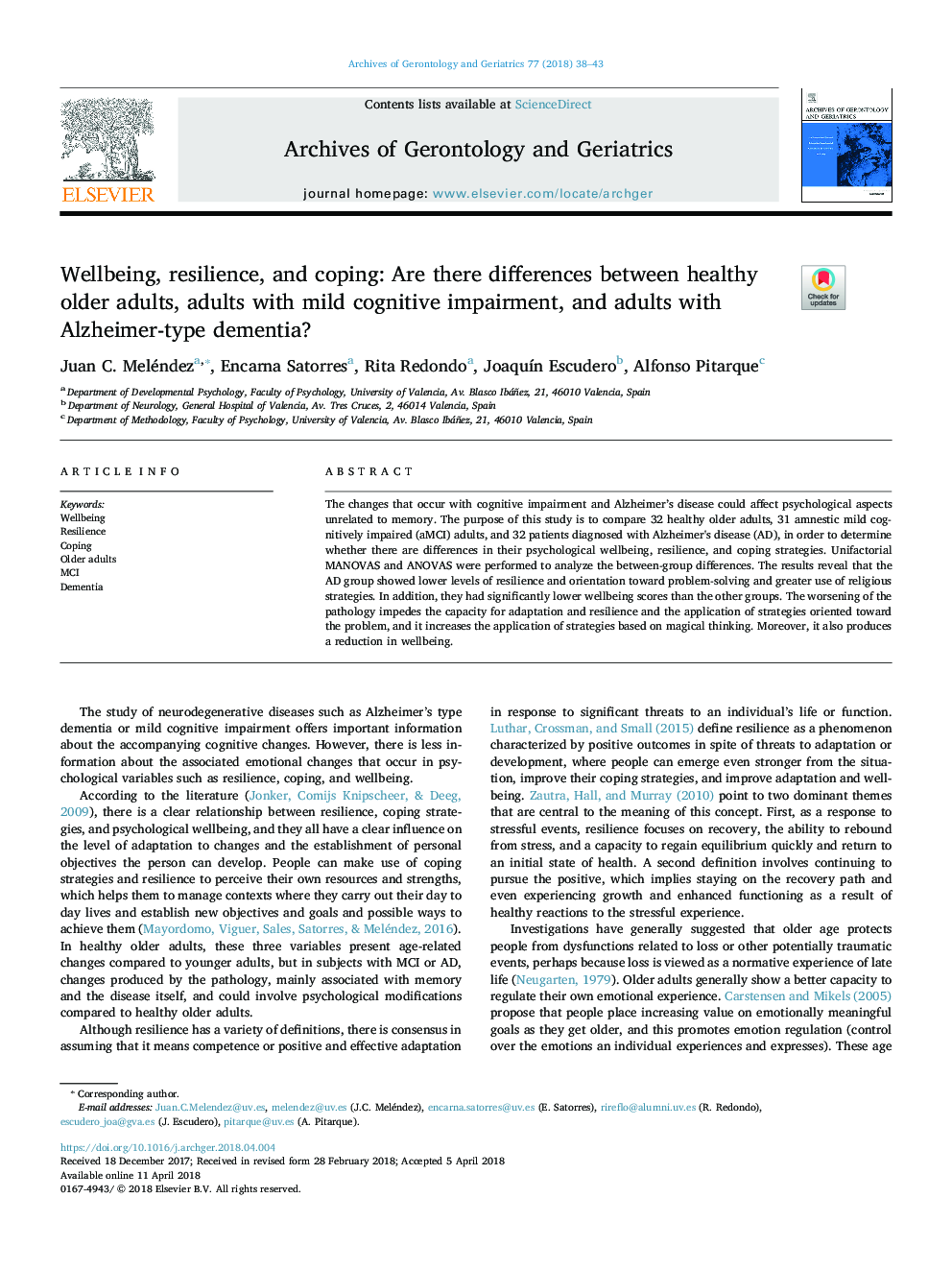| Article ID | Journal | Published Year | Pages | File Type |
|---|---|---|---|---|
| 8257378 | Archives of Gerontology and Geriatrics | 2018 | 6 Pages |
Abstract
The changes that occur with cognitive impairment and Alzheimer's disease could affect psychological aspects unrelated to memory. The purpose of this study is to compare 32 healthy older adults, 31 amnestic mild cognitively impaired (aMCI) adults, and 32 patients diagnosed with Alzheimer's disease (AD), in order to determine whether there are differences in their psychological wellbeing, resilience, and coping strategies. Unifactorial MANOVAS and ANOVAS were performed to analyze the between-group differences. The results reveal that the AD group showed lower levels of resilience and orientation toward problem-solving and greater use of religious strategies. In addition, they had significantly lower wellbeing scores than the other groups. The worsening of the pathology impedes the capacity for adaptation and resilience and the application of strategies oriented toward the problem, and it increases the application of strategies based on magical thinking. Moreover, it also produces a reduction in wellbeing.
Related Topics
Life Sciences
Biochemistry, Genetics and Molecular Biology
Ageing
Authors
Juan C. Meléndez, Encarna Satorres, Rita Redondo, JoaquÃn Escudero, Alfonso Pitarque,
